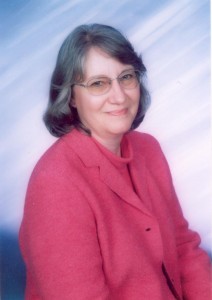
Lin Johnson is one of the most influential people in Christian publishing as a writer, editor, and instructor. Perhaps here biggest contribution is her annual Write to Publish Conference, held every year on the campus of Wheaton College. Personally, the Write to Publish Conference has had more influence on my writing career than almost any other factor. It’s one of the premier writing conferences in the country.
Lin is Managing Editor of The Christian Communicator, Advanced Christian Writer and Church Libraries and is the author and co-author of more than 60 books, including Christian Education: Foundations for the Future, Extracting the Precious from 2nd Corinthians, Encouraging Others, and The Book of John from The Smart Guide to the Bible Series. Lin specializes in Bible curriculum and is a Gold Medallion Book Award recipient. She’s a sought-after teacher at writers’ conferences across the country and internationally. Lin was kind enough to stop and answer some questions about Christian writing:
You’ve been a writer and editor for a long time, but perhaps you are best known for helping writers get their start in Christian publishing. What motivates you to continue to educate and assist the next generation of writers rather than seek your own “fame and glory” as it were?
One of my spiritual gifts is teaching, and training writers is a way to use that gift. A great thing about teaching is the ripple effect of influence that goes far beyond a classroom or conference. As I assist people in honing the craft of writing and getting published, their words, in turn, will influence thousands of people I’d never be able to reach.
Write-to-Publish (WTP) has been around for almost 40 years. How did it get started?
It started in 1971 (and missed a couple of years) as a two-week, credit-only, summer-school course at Moody Bible Institute in Chicago. Eleven years later, it became a one-week workshop to allow more people to attend, then morphed into a conference format a few years later. I worked as assistant director for almost 10 years.
In the early ‘90s, Moody decided to drop several conferences; and Write-to-Publish was one of them. The school gave me the rights to the name, the mailing list, and cassette masters for past conferences.
However, I didn’t have the upfront money to run it as a conference, so I organized a few Saturday seminars at Moody and Wheaton College. Then in 1996, with several interest-free loans from fellow congregation members, I started it as a conference again at Wheaton College.
Why is a conference like WTP so crucial for a writer to break into the marketplace?
So much of getting published these days is the result of networking, of who you know. At a conference like WTP, you have the opportunity to meet editors and agents who are looking for manuscripts—or they wouldn’t take the time to be there. Plus you get to know other writers who may provide introductions to their editors or agents and share writing leads later.
A conference is crucial for book writers. Every year more book houses close to looking at unsolicited proposals, so it’s difficult to sell a book without an agent. And few agents are interested in writers who haven’t sold books. The way around this Catch-22 situation is attending a writers conference since book editors go to them, looking for new writers.
What are the common mistakes a first-time conference attender might make at a conference like WTP?
The biggest mistake I see is going to a conference with a myopic focus on selling one or two specific manuscripts, usually books, instead of being open to what God has in mind. His plan is always so much bigger than ours.
Another mistake is not getting to know other writers who attend the conference. Yes, editors are the ones who buy manuscripts; and you want to get acquainted with as many as possible. But networking with writers can pay off in many ways: lifelong friendships, prayer/accountability partners who motivate you get more writing done, passing along your name to editors for other projects.
If you could give one piece of advice (besides attending WTP!) to an emerging Christian writer, what would it be?
Learn the craft and the market. Editors are looking for polished manuscripts that won’t take a lot of time, which they don’t have, to edit. Learning the craft involves knowing the structure for different types of manuscripts and genres, practice, knowing the proper manuscript format, getting feedback from a critique group or writing partner, and more practice.
Learning the market involves finding what publications and houses take the types of manuscripts and topics you write (the Christian Writers’ Market Guide makes that task easier), following writers guidelines, and analyzing at least one issue of a periodical or a book-house catalog/website. As a magazine and newsletter editor, I get dozens of articles and queries a year that have nothing to do with the audience and type of periodical. Those are guaranteed rejections.


